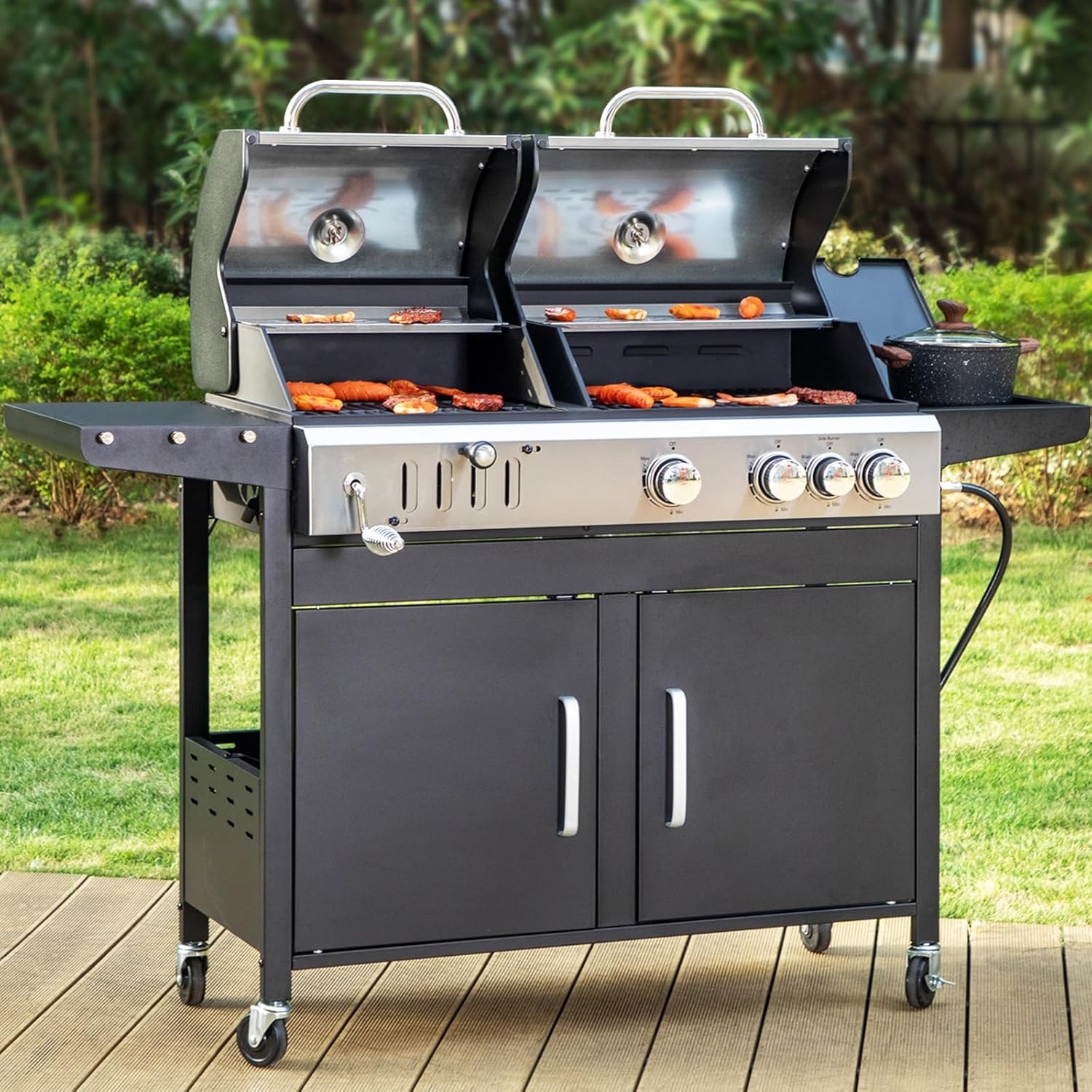In an era of increasing environmental awareness and the quest for sustainable practices, the methods we use to produce charcoal are under scrutiny. Traditional charcoal production has long been the norm, but with the rise of modern charcoal burners, there is a compelling case for making the switch. This article explores the differences between charcoal burners and traditional methods, the benefits of modern technology, and why adopting these innovations can lead to a more sustainable future.
The Traditional Methods of Charcoal Production

Traditionally, charcoal has been produced through a process known as pyrolysis, which involves heating wood in the absence of oxygen. This method has been utilized for centuries and is still prevalent in many parts of the world. However, it comes with several drawbacks that modern charcoal burners aim to address.
- Efficiency: Traditional methods often result in low yields of charcoal and can take a long time to produce usable charcoal.
- Environmental Impact: The traditional burning process releases a significant amount of smoke and pollutants into the atmosphere, contributing to air pollution.
- Deforestation: The demand for charcoal has led to extensive deforestation in many regions, as trees are cut down to supply the raw material.
These issues have prompted innovators to seek more effective methods of charcoal production.
What Are Charcoal Burners?

Charcoal burners are modern devices designed to produce charcoal more efficiently and sustainably. They utilize advanced technology to optimize the pyrolysis process, resulting in higher yields and lower emissions. These systems come in various forms, from small-scale models for personal use to large industrial setups.
- Types of Charcoal Burners:
- Retorts: Sealed chambers that allow for controlled pyrolysis.
- Kilns: Larger structures designed for mass production.
- Portable Burners: Compact units suitable for small-scale use.
- Modern Features:
- Temperature Control: Regulates heat to optimize charcoal quality.
- Emission Filters: Reduces harmful gases released during production.
- Automated Processes: Enhances efficiency and reduces labor costs.
Advantages of Charcoal Burners Over Traditional Methods
Switching to charcoal burners presents numerous advantages that can significantly impact the environment, economy, and the charcoal industry as a whole.
1. Environmental Benefits
One of the most compelling reasons to switch to charcoal burners is the environmental impact. Here are some notable benefits:
- Reduced Emissions: Modern charcoal burners emit significantly fewer pollutants compared to traditional methods, helping to combat air pollution.
- Lower Deforestation Rates: Efficient production means that less wood is required to produce the same amount of charcoal, reducing the pressure on forests.
- Carbon Capture: Some advanced charcoal burners are designed to capture and utilize the gases released during the burning process, further reducing greenhouse gas emissions.
2. Economic Advantages
The economic implications of transitioning to charcoal burners are equally important. Consider the following:
- Higher Yields: Charcoal burners can produce more charcoal per unit of wood compared to traditional methods, leading to increased profitability.
- Job Creation: The introduction of modern technology can create new job opportunities in manufacturing, maintenance, and operation of charcoal burners.
- Cost Savings: Although the initial investment may be higher, the long-term savings on fuel and labor costs make charcoal burners more economically viable.
3. Improved Quality of Charcoal

The quality of charcoal produced using modern burners is typically superior to that produced by traditional methods. This quality enhancement can be attributed to:
- Consistency: Controlled conditions lead to uniform charcoal quality, which is essential for both consumers and retailers.
- Fewer Impurities: Advanced filtration systems remove contaminants that could affect the burning properties of charcoal.
- Better Performance: High-quality charcoal burns hotter and longer, making it more desirable for cooking and heating applications.
Case Studies: Successful Transitions to Charcoal Burners

Several regions around the world have successfully transitioned from traditional charcoal production to modern charcoal burners, showcasing the potential benefits of this shift.
1. Brazil: Sustainable Charcoal Production
In Brazil, various communities have adopted modern charcoal burners, which has led to significant reductions in deforestation rates. One notable case is the integration of charcoal burners in the production of pig iron. These systems have not only improved the efficiency of charcoal production but have also contributed to the overall sustainability of the iron industry.
2. Africa: Empowering Local Communities

In various African countries, NGOs have introduced charcoal burners to local communities as a means of promoting sustainable practices. These initiatives have empowered communities to produce their own charcoal while reducing reliance on unsustainable traditional methods. The result has been improved livelihoods and better environmental stewardship.
Challenges in Transitioning to Charcoal Burners

While the advantages of charcoal burners are significant, there are challenges that must be addressed during the transition:
- Initial Investment: The cost of purchasing charcoal burners can be a barrier for small producers.
- Training and Education: Users may require training to operate and maintain modern equipment effectively.
- Access to Technology: In some regions, access to modern technology may be limited, hindering widespread adoption.
The shift from traditional charcoal production methods to modern charcoal burners represents a significant opportunity for environmental sustainability, economic growth, and improved product quality. By reducing emissions, conserving forests, and increasing profitability, charcoal burners offer a compelling alternative that benefits both producers and consumers alike.
As we face the challenges of climate change and environmental degradation, adopting innovative practices like charcoal burners is not just a choice; it’s a necessity. The success stories from Brazil and various African countries illustrate the potential for positive change, demonstrating that with the right tools and approaches, we can create a more sustainable future for charcoal production. Embracing this transition is essential for a healthier planet and a thriving economy.